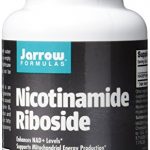Liver Disease Cirrhosis
Preventing Alcohol-Induced Liver Disease With Nicotinamide Riboside
Alcohol-induced liver disease is a progressive disease, starting from liver steatosis, which then progresses to liver fibrosis or even cirrhosis and liver cancer. It is important to prevent liver damage caused by alcohol consumption at its starting point. Nicotinamide riboside (NR) is a form of vitamin B3, which is a precursor of NAD our body…
Read MoreCan You Get Hepatitis C from Saliva or Kissing?
More than 3.5 million Americans are infected with chronic Hepatitis C, one of the most common causes of liver disease today. Although it is believed to be primarily transmitted through blood to blood contact, there are indications that other means of contracting Hepatitis C are possible. Discover if this means you can get Hepatitis C…
Read MoreNeedle Exchange for Halting New Hep C Infections
Needle Exchange for Halting New Hep C Infections Learn why there is an increasing number of new Hepatitis C infections, and what public health experts suggest to tackle this problem.  Harm reduction programs do not condone or stop intravenous drug use, but they are proven routes for preventing infections spread through needle sharing. In…
Read MoreHepatitis and Cirrhosis: Similarities and Differences
Hepatitis and Cirrhosis: Similarities and Differences What is the Difference Between Hepatitis and Cirrhosis? By Naheed Ali, MD Updated July 09, 2017 What is the difference between hepatitis and cirrhosis?. Tara Moore/Cultura/Getty What are the differences between hepatitis and cirrhosis? How are the symptoms of the two diseases, the causes, and the treatments different and…
Read MoreEnd-Stage Liver Disease in HIV Disease
This article is a wonderful description of cirrhosis and it’s major symptoms. Everyone with cirrhosis should read this and learn from it. Craig Liver disease is the most common non–AIDS-related cause of mortality in HIV-infected patients. HIV-infected patients with chronic liver disease progress more rapidly to cirrhosis, and those with hepatitis B virus or hepatitis…
Read MoreWhat causes liver pain after drinking? – and other things
What causes liver pain after drinking? If you are one of the many Americans who enjoy having a drink or two, experiencing liver pain after drinking may alarm you. Your liver is a vital organ responsible for breaking down the nutrients you consume and turning them into energy, as well as detoxifying your body, but…
Read MoreThe 9 Truths About Hepatitis C Treatment Success
As the medications for Hepatitis C continue to improve, greater numbers of people are relishing in their successful treatment outcomes. Despite finally being free of the Hepatitis C virus, most physicians refrain from telling their patients they are cured. The reason for avoiding this terminology is uncertainty regarding the implications of successful Hepatitis C treatment.…
Read MorePreviously Unforeseen Risk Tarnishes Hep C Wonder Drugs
The improvement in Hepatitis C treatment success marks a dramatic change in the prognosis for most Hepatitis C diagnoses. New direct-acting antiviral drugs boast viral eradication rates in the high 90th percentile, rendering hope that the Hepatitis C virus can be eradicated. Until recently, the only major obstacle surrounding these Hepatitis C medications has been…
Read MoreHepatitis C Disease – Progression and Management
Hepatitis C Disease – Progression and Management After exposure to the hepatitis C virus, the window period before antibodies can be detected using a standard test usually lasts from 2 to 26 weeks. The initial phase of hepatitis C is called acute infection. Acute HCV infection may resolve with spontaneous viral clearance, typically within 2–12 weeks.…
Read MoreWhat Is Hepatitis C Viral Load?
If you’re being treated for hepatitis C virus infection — also called HCV– your doctor is keeping track of your viral load. What is HCV viral load? Why does it matter? WebMD got answers to your most frequently asked questions about hepatitis C and viral load from two experts: Frank Anania, MD, associate professor of…
Read More








